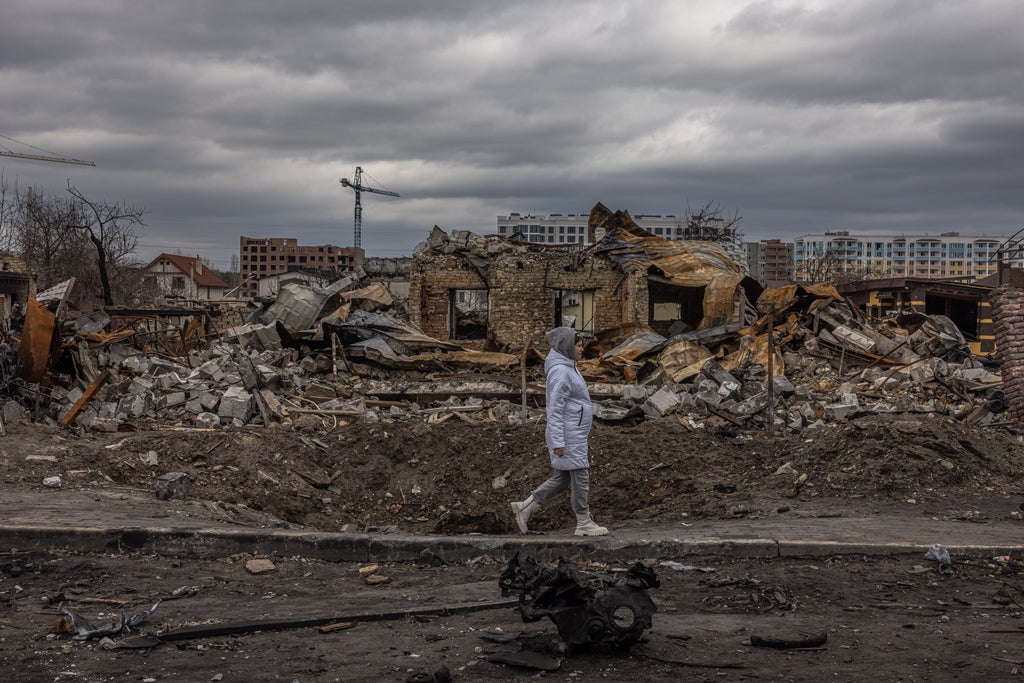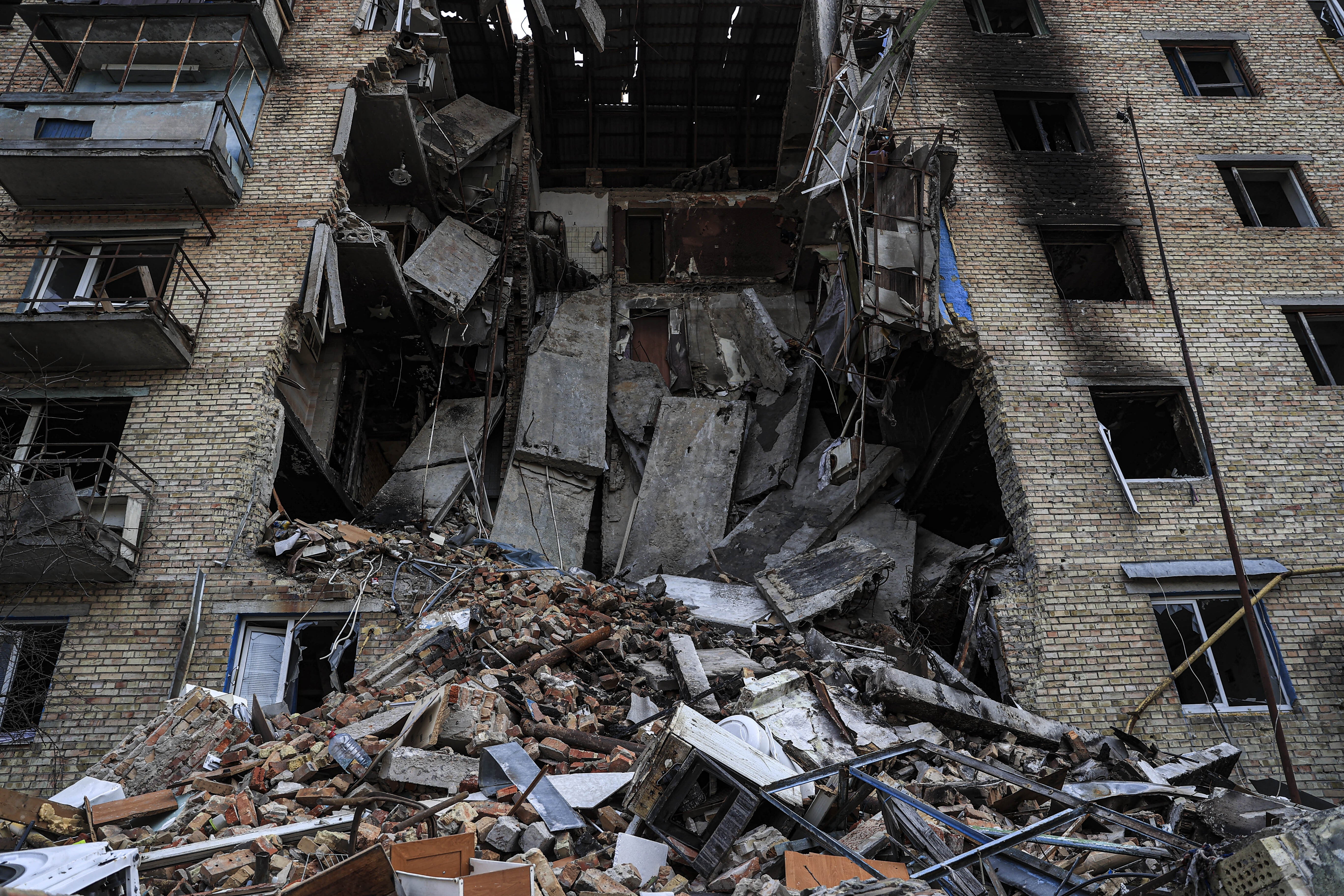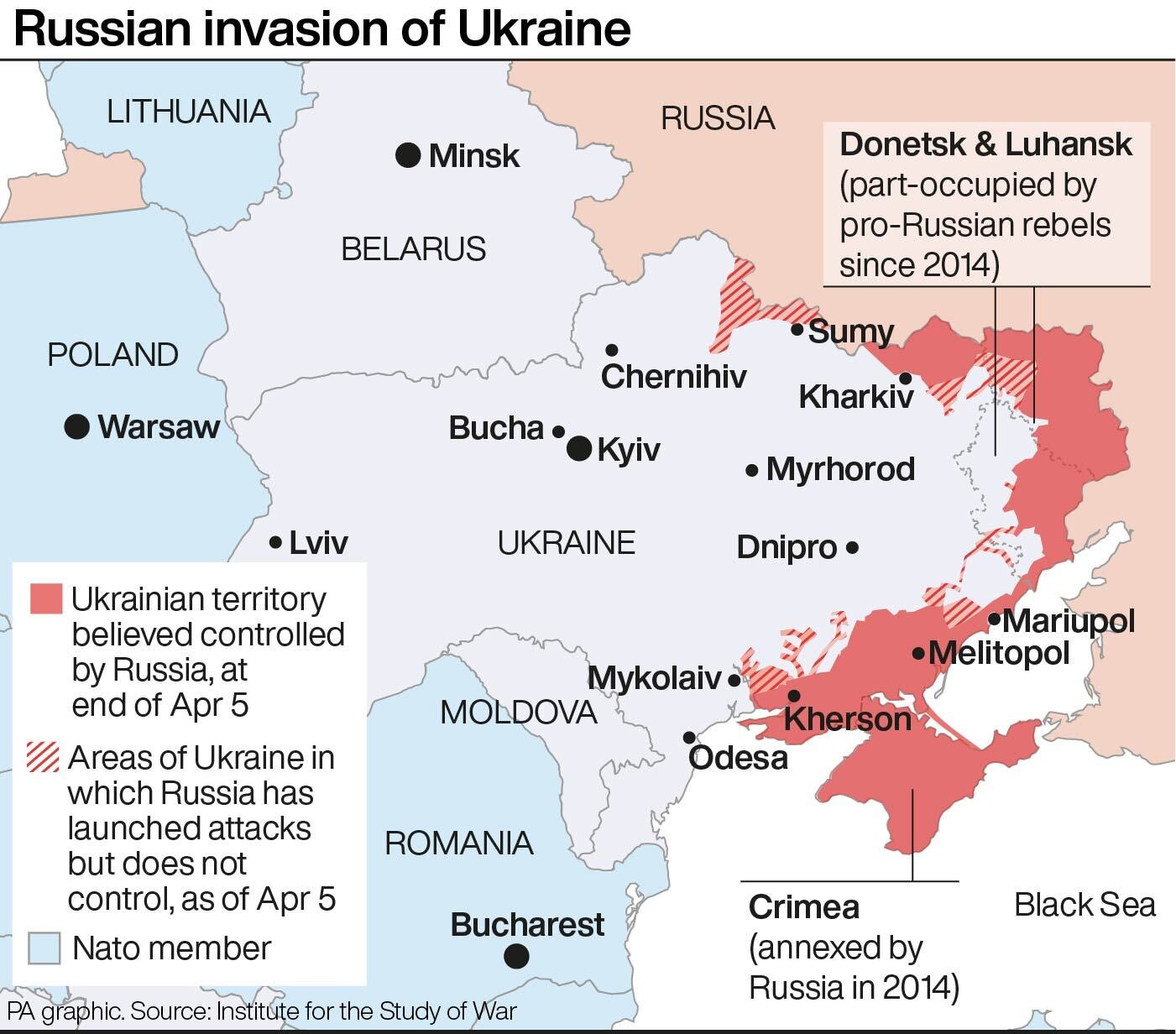
Radio messages between Russian military personnel discussing the killing of civilians in the Ukrainian town of Bucha have been intercepted by a German intelligence agency, reports claim.
The BND agency presented its findings to the country’s parliament on Wednesday, according to the news magazine Der Spiegel, which it claims include communications corresponding to known deaths.
Vladimir Putin’s troops have been accused of large-scale atrocities in Bucha following their withdrawal from the country’s north last week.
Ukraine says hundreds of bodies have been found in mass graves, while others have been left rotting in bags or in the open on the streets of the town just 25km west of the capital of Kyiv.
Local officials say more than 300 people were killed by Russian forces in Bucha alone, and around 50 of them were executed. The Kremlin vehemently denies the accusations.
In one intercept, a soldier is heard discussing shooting a person off their bicycle, Der Speigel reports. A body was also photographed lying next to a bicycle.

Additional recordings suggested similar events had occurred in other cities and towns across Ukraine, but their physical origins were reportedly harder to locate.
A German government spokesperson declined to comment on Der Spiegel’s report. The BND foreign intelligence office also declined to comment.
It follows reports from the same newspaper which claimed the German government had access to satellite images from Bucha indicating that Russia was involved in the killing of civilians.
“It’s true that the federal government has indications of Russian perpetration in Bucha,” a security source said.

“However, these findings on Bucha refer to satellite images. The radio transmissions cannot be clearly assigned to Bucha.”
He concluded by saying there was no indication of an order from the Russian armed forces’ general staff regarding Bucha.
Ukrainian president Volodymyr Zelensky earlier described the scene in Bucha as evidence of “genocide” and “war crimes”, with dead bodies having been “found in barrels, basements, strangled, tortured.”
But Moscow hit back on Tuesday, calling the allegations a “monstrous forgery” meant to discredit the Russian army and justify new Western sanctions.







